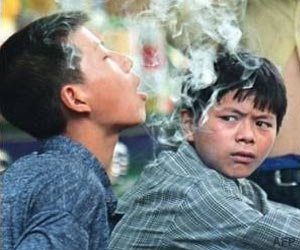Researchers have found evidence of an interaction between genetic risk factors and prenatal smoking that increase aggressive behavior in kids, especially in girls.

The study, "Prenatal Smoking and Genetic Risk: Examining the Childhood Origins of Externalizing Behavioral Problems," was led by Melissa Petkovsek, a doctoral student at Sam Houston State, and was based on a nationally representative sample of 1,600 twins, including identical and fraternal pairs, collected during early childhood. The study found that children exposed to prenatal smoking, and who also had an increased genetic propensity for antisocial behavior, exhibited the most pronounced conduct problems during childhood. Interestingly, this gene-environment interaction was most pronounced in females.
The study demonstrates that prenatal environmental experiences may influence future behavioral problems in children, especially in combination with the presence of genetic risk factors. Ultimately, the study presented four key findings:
- • Genetic risk factors increase behavioral problems in children
- • Prenatal maternal smoking, when taken in isolation, did not appear to directly result in behavioral problems
- • The influence of genetic risk factors on behavior problems were most pronounced for children exposed to prenatal smoking
- • The interaction between genetic factors and prenatal smoking was isolated to females
"Social scientists have spent decades looking at what happens with parents and the family to try and determine why some children develop behavioral problems and others don't," said Boutwell. "While we are not saying that family environments are completely unimportant, environmental experiences encompass far more than just parenting. It is possible, in fact, than other environmental experiences may matter just as much, and perhaps more in some cases, for development than simply what happens inside the home between parents and children."
Source-Eurekalert















